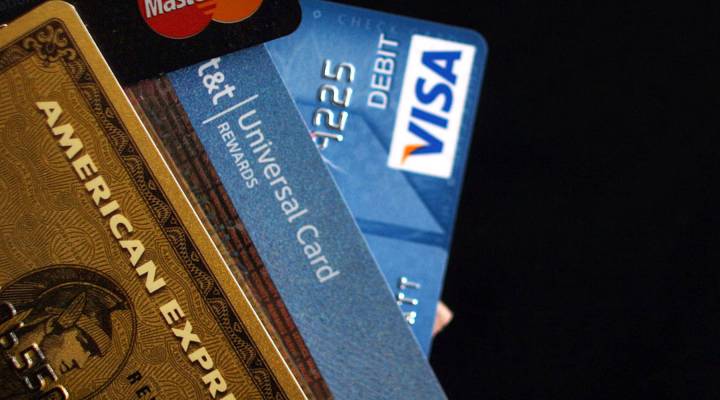
Why consumer credit is a matter of "social trust"
A credit score is the calculated probability of how likely you are to pay debts. But it affects where you live, what car you can buy and even whether or not you can get a job. Josh Lauer is a professor of media studies at the University of New Hampshire. His new book, “Creditworthy: A History of Consumer Surveillance and Financial Identity in America,” looks at the long history of the credit industry in the United States. He talked with Marketplace host Kai Ryssdal about how that industry has changed over time. The following is an edited transcript of their conversation.
Kai Ryssdal: Not to impugn anybody who works in the credit industry right now, but it sure does seem that consumers in this economy have been reduced to a set of numbers and algorithms that really all you have to do is run a couple of computer programs and boom, you’re done.
Josh Lauer: Before credit scores, if you wanted to open an account at a department store, get a personal loan at a bank, you had to go and meet personally with the credit manager, and he or she would take your application and have a conversation with you and try to gauge something about your integrity and whether you were the kind of person who would be trusted.
Ryssdal: Oh, nothing could possibly go wrong there.
Lauer: No, of course not. But it’s actually kind of complicated, because on the one hand, credit scoring is supremely rational, and you can have agreed upon variables that are nondiscriminatory. But the other side of that is that when you could meet with another human being and say, “Hey, I can see there’s a blemish in my credit report or I was late on this payment.” I can tell this individual, the credit manager, that it was because of a medical debt, or I lost my job temporarily, or I was laid off, and you can contextualize things that you cannot do when credit scores are used.
| Millennials teach credit card companies a few lessons |
| Prestige credit cards are a big hit with millennials |
| The 5 best ways to build your credit |
Ryssdal: Which gets to a deeper point that you explicitly say in the book — credit is a matter of social trust. And I guess here’s my here’s my question about that: That certainly was true in the early days when everybody knew everybody. But does that still exist today where again, we’re just numbers, and banks are spitting out forms, and yes, you get the loan or no, you don’t?
Lauer: I would say it does still exist. And not for the reasons that we might think, but the way that we use credit information for employment, for example, some of the information that’s being requested doesn’t really have to do with whether or not you pay your debts. It’s more about whether you are a more responsible person, whether you can be trusted. And yes, that’s not social trust in the context of, you know, everyone getting along and in a communal sense, but a sense that you are a member of society, and you are the kind of person that we want to work with or have, you know, associated with our business.
Ryssdal: What would happen in the economy today if we didn’t have a credit bureaus?
Lauer: It’s actually unimaginable. So think something simple, like you go to a big box store, and you’re checking out, and an employee at the register says, “Hey, would you like to save 10 percent today by opening a store charge account? Well, all you have to do is provide a driver’s license and a Social Security number, and in a couple of minutes you can walk out of that store with hundreds or thousands of dollars of merchandise, all with the little promise that you might pay one day. And so that’s the foundation of the modern credit economy. And for the most part, it works.
Excerpted from “Creditworthy: A History of Consumer Surveillance and Financial Identity in America” by Josh Lauer. Copyright (c) 2017 Columbia University Press. Used by arrangement with the publisher. All rights reserved.
There’s a lot happening in the world. Through it all, Marketplace is here for you.
You rely on Marketplace to break down the world’s events and tell you how it affects you in a fact-based, approachable way. We rely on your financial support to keep making that possible.
Your donation today powers the independent journalism that you rely on. For just $5/month, you can help sustain Marketplace so we can keep reporting on the things that matter to you.












